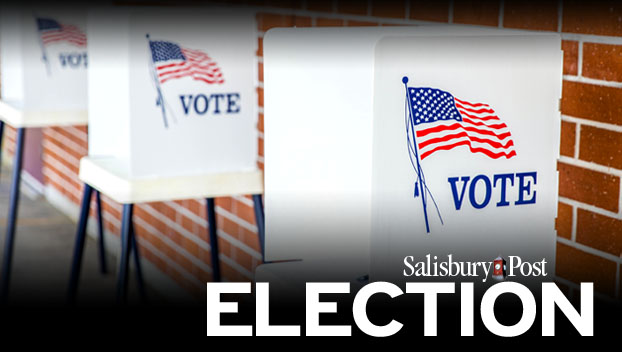A guide to key down-ballot North Carolina races
Published 2:26 am Wednesday, November 4, 2020
By Jonathan Drew and Gary D. Robertson
Associated Press
RALEIGH — Democrats flipped two open U.S. House seats that they had been favored to win in North Carolina on Tuesday while Republicans defended two seats that had turned into competitive races, leaving the state’s congressional delegation with an 8-5 split in favor of the GOP.
The congressional races were among key down-ballot races that also included contests that were determining the power balance in the state’s legislature. Republicans maintained control of both legislative chambers.
The key presidential battleground also has a hotly contested U.S. Senate race. And Democratic Gov. Roy Cooper was reelected, defeating Republican challenger Lt. Gov. Dan Forest.
Below is a look at key down-ballot races for the U.S. House, state legislature, top statewide offices and the state Supreme Court.
U.S. HOUSE
Democrats flipped two U.S. House seats after the Republicans who currently hold those seats declined to run for reelection because the boundaries tilted left, while the GOP held onto two other seats in closely contested races.
Democrat Kathy Manning beat Republican Joseph Lee Haywood in the Greensboro-area 6th Congressional District, and Deborah Ross defeated Republican Alan Swain in the Raleigh-area 2nd Congressional District.
The two seats had previously been in GOP hands before district boundaries were redrawn in 2019 as part of court-mandated redistricting.
Meanwhile, two other closely contested races went in the GOP’s favor.
Republican Madison Cawthorn won the 11th District in western North Carolina, a seat vacated by Mark Meadows, who became President Donald Trump’s chief of staff.
In the 8th District, which runs along several counties in the southern part of the state, Republican incumbent U.S. Rep. Richard Hudson defeated Democratic challenger Patricia Timmons-Goodson, who previously served on the state Supreme Court.
Both of those districts had been considered Republican-leaning, but the races proved to be close.
Meanwhile, nine incumbents who were favored also retained their seats. Incumbent U.S. Reps. David Price and G.K. Butterfield were reelected, and U.S. Rep. Alma Adams ran unopposed.
Republican U.S. Reps. Patrick McHenry, Ted Budd, Dan Bishop, Virginia Foxx, David Rouzer and Greg Murphy — all who had been favored to win — were reelected.
LEGISLATURE:
North Carolina Republicans withstood a massive effort by Democrats inside the state and nationally to retake both General Assembly chambers.
Election results on Tuesday showed GOP candidates winning majorities in the 50-seat Senate and 120-seat House so the party could extend control for another two years and retain their conservative policy agenda. Democrats had been on a multimillion-dollar spending push to win several additional seats in each chamber and flip power.
The GOP majorities mean Republicans will be able in 2021 to redraw district maps for the next decade based on new census figures. Republicans controlled redistricting in the 2010s. Their maps were almost continuously in court after Democrats and their allies filed lawsuits.
Despite several races in each chamber still uncalled due to close, unofficial results, Republicans have won 27 seats in the Senate and 65 in the House.
COUNCIL OF STATE
In a slate of other top statewide contests, Republican Mark Robinson was elected lieutenant governor, becoming the first African American to hold that position.
Robinson, a Greensboro resident who earned notice following a viral video of a gun rights speech he gave, defeated Democrat Yvonne Holley, a state legislator.
Other Republican incumbents who won included longtime Agriculture Commissioner Steve Troxler, state Treasurer Dale Folwell and Insurance Commissioner Mike Causey.
All 10 offices that comprise the group of top elected officials known as the Council of State were being decided in the general election.



